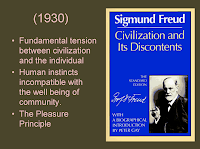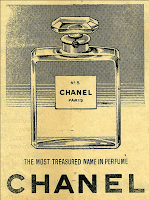Consumerism: Persuasion, Society, Brand & Culture
Relevance to my question on what makes a good brand image.
Based more on historical references.
Based on commercialism emerging in early 20th century.
False, irrational desire for things is the basic concept behind consumerism.
No Logo Naomi Klien 1999 (Book)
Rise of consumerism
Ways to challenge it.
Adam Curtis Century of Self Adam Curtis 2002 (Film)
Worth watching to add relevance and influence to my essay on branding.
Worth watching to add relevance and influence to my essay on branding.
Consumerist aspects
Sigmund Freud (1856-1939)
1930 Civilization and its discontent
Fraud argues that we have animal base instincts within our unconscious, sexual desires, violence against authorities and people we see a threat. Instinctual desires.
He argues that these instances create a society and civilization that is incompatible, laws and discipline keep things together as a community.
The pleasure principle = you feel good, content, happy with your life when you act upon these instinct desires.
WW1 1914-18
Sigmund Fraud argues that this was a result of a global form of release of human instincts of violence, against threats.
Edward Bernays (1891-1995)
Press agent
He took an understanding of our hidden desired, translated it to the american consumerism and capitalist.
He argued that if we can make people feel like there instinctual desires are been met when they buy things, creating a demand for consumer good to keep people feeling content and happy.
Works with business's to make there products seem more desirable.
Torches of Freedom
Organized a PR stunt on 1929 Easter parade, young society recognized woman were payed to perform in this stunt to simultaneously take out a cigarette and light it and smoke in-front of the whole crowds and tipping off newspapers of whats going to happen created a media storm based on the girls lighting up "torches of freedom" a symbolic display of contemporary female power.
From this it became socially accepted for woman to smoke, it became almost sexual desirable, a strange turnaround from previous views on the matter of smoking.
Attach products to instinctual human desires.
In 1924 this was done by product placement, celebrity endorsements, the use of fake pseudo-scientific reports.
Linking a celebrity to a product made people believe they would be free, and there needs met through the purchase and use of consumerist pushed products.




Fordism
Method of manufacturing, the way of making things on the production line in terms of mass production.
Trebles rate of productivity (production rate) and profit.
Created wages for workers, allowing them to spend this money on consumerist goods and needs. A double edged sword.
Model T ford 1908 - 1927
Shows the rate of development within the improvement of the production process and subsequent profits.
Branding aspects brought in
Hartleys Jam made out to be something more special than it actually is, making it feel home made. Its still mass produced though!
1909 Oldsmobile
Cars were marketed to make males seem more sexual desirable, pushing the meeting of subconscious instincts through these products and services.
1919
The car is a secondary element of the advert, the main concept is the upper-class home in the backdrop, making the consumer think that they are entering this upperclass section of society.
Desire
Brands make people desire, and need that product. Make them feel in-superior if they don't have that product, make them feel complete if they do use this product or service.
The Hidden Persuader by Vance Packard 1957 highlights main marketing techniques used to create this desire:
Selling emotional security
Selling reassurance of worth
Selling ego-gratification
Selling creative outlets
Selling love objects
Selling sense of power
Selling a sense of roots
Selling immortality
Celebrity endorsement, ego gratifications makes you feel on a similar level to that person.
Aunt Jemima Pancake Flour made people feel creative, they felt like they were cooking, using ingredients.
They could just buy the sport ingredients wich is simple enough to do. Or buy instant pancake liquid, but instead they buy the middle product wich is the same as the instant liquid just with the egg removed.
They feel like this is a product that will satisfy there needs more and as mentioned feel creative and feel like there doing something.
1920 Public Opinion Walter Lippmman
Argues that a new elite is needed to manage the bewildered herd.
He argues that the political class has no idea how to manage the society and people they should be managing and looking after.
Idea of consumerism is used as a tool allowing control of society.
Highlights that a system has been created that their animal/subconscious needs are been met. Giving society an illusion of freedom.
Politics think that if people don't feel there needs are been met, a revolution will arise and the money and financial advantage they have over society will disappear.
Russian Revolution 1917
Rise of communism.
Oct 24 1929 'Black Tuesday'
Stock market crash, the crash of capitalism
Profits can't rise anymore, causing them to crash.
Lead to the great depression
Political class finally released through this that if big business carry on to push consumerism, (robbing peoples money, brainwashing people, all for there financial gain) that big changed can happen causing wide spread problems.
New York Worlds Fair
A result of a giant PR stunt, 1.45 mile wide.
Pioneered by Edward Berne's.
Was meant to be a celebration of what makes America unique, what makes them unique and free compared to the communist structures within the Soviet Union.
Its a celebration of American Consumerism.
A message passed on that you're a free citizen, you can buy what you like, buy a car that makes you more attractive, buy food products that make you feel like your creative, buy clothing that makes you appear more wealthier than you are.
'Democracity'
"The consumer system presented as the ultimate expression of human freedom"
A giant vision of the future.
In actual fact its an illusion of democracy, you have no freedom, the only freedom you have is what type of product you can buy out of the many unnecessary products out there within the consumerist market.
Consumerism is an ideological project
We believe that through consumption our desires can be met.
The consumer self
The legacy of Bernays/PR can be felt in all aspects of 21st century society
The conflicts between alternative models of social society.
Point to take forward
Make branding out to be less consumerist and capitalist pushed, put it in a better light.























No comments:
Post a Comment